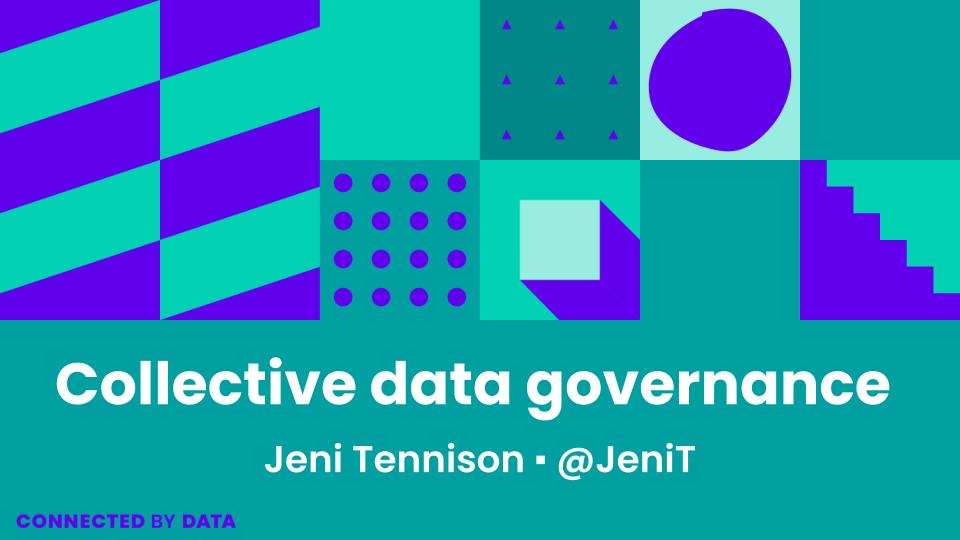As one of their affiliated researchers, I was asked by the Bennett Institute for Public Policy to give a brown bag lunch to discuss my thoughts on collective data governance.
After the presentation, the discussion focused on three areas:
- How to make participatory approaches effective
- How to get to the future we want to see from where we are now
- What other sectors or historical shifts to learn from
How to make participatory approaches effective
How can we ensure participatory approaches are seen as legitimate, and give them teeth such that organisations aren’t able to “participation wash” their activities?
We discussed the role of transparency to enable third-party scrutiny of the process, outcomes, and implementation of collective data governance, and how that scrutiny might come from civil society groups or from more formal regulators. But this is definitely an area that needs further investigation.
One challenge that was highlighted was that the kind of people who participate in these activities are those with an axe to grind. I found this interesting because it reminded me how the participatory models suggested in Against Elections used a combination of full sortition (ie people selected from the population at random) and mechanisms through which volunteers and technical experts could get involved. The inclusion of experts is obviously useful because of their expertise, but can also diminish the perceived legitimacy of the outcome because they are not seen as “real people”.
More broadly, we also talked about the need for representation of people who are at higher risk or have higher costs related to the collection and use of data. We discussed how the law is set up such that those who provide data (the data subjects) have more rights than those on whom that data is used, and that this is something that a more collective approach could change.
How to get to the future we want to see from where we are now
What will it take to get the public engaged in and asking for change, which is probably what’s needed to gain the political will to make that change happen?
Health is more advanced in terms of getting public and patient engagement in data governance than many other areas. We discussed why this might be, and thought it could be about the relative ease of finding patient groups to engage with, and because of the personal investment that people have with health data – it’s something that we feel viscerally.
We talked about how many of the discussions about data (including health data) are negatively framed: they are about bad things happening and the need to stop them, rather than about good things happening that should be repeated. In some ways this is a good thing – there needs to be critique and scrutiny to get improvement – but it also can distort the conversation. People who might be involved in activities such as citizen juries may already know about what can go wrong, but need informing about the benefits of the use of data.
We discussed how change often arises from a crisis and what form such a crisis could take. We talked about the impact of the Facebook / Cambridge Analytica scandal, and how it and similar crises have tended to lead to a doubling-down on individualistic approaches to data governance (cries of “you own your data”). We were left with the question about what kind of crisis would galvanise opinion around a more collective approach.
What other sectors or historical shifts to learn from
There were several suggestions about other examples to learn from:
-
Suffrage – we talked about proposed data governance models that focus on people selecting personal data representatives who can then make decisions on their behalf, and how selecting these might be a bit like working out which political party to support.
-
Mental health – we discussed how there is a delegation of power to the judgment of the practitioner but also having lay members of ethics boards; there’s more to read here in this paper by Sylvie Delacroix and Ben Wagner.
-
Electricity markets – where people kept hoping that customers would look at price comparison sites and act on them, but of course they didn’t; the observation was made that you can’t fix problems of the market from the user side.
-
Car safety – in particular focusing on how safety for those inside the car has improved while safety for those outside the car has not. This is a nice analogy to use when trying to make the point about how our decisions about data as individuals can have effects on others.

